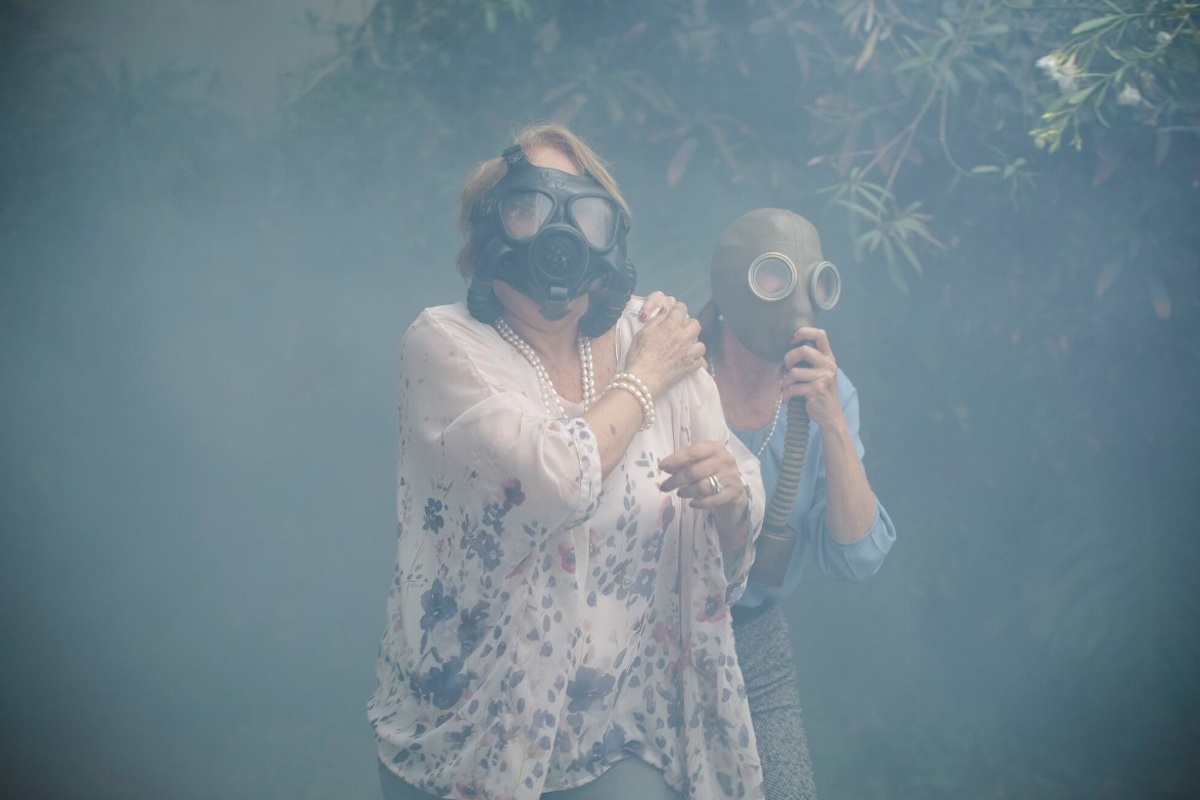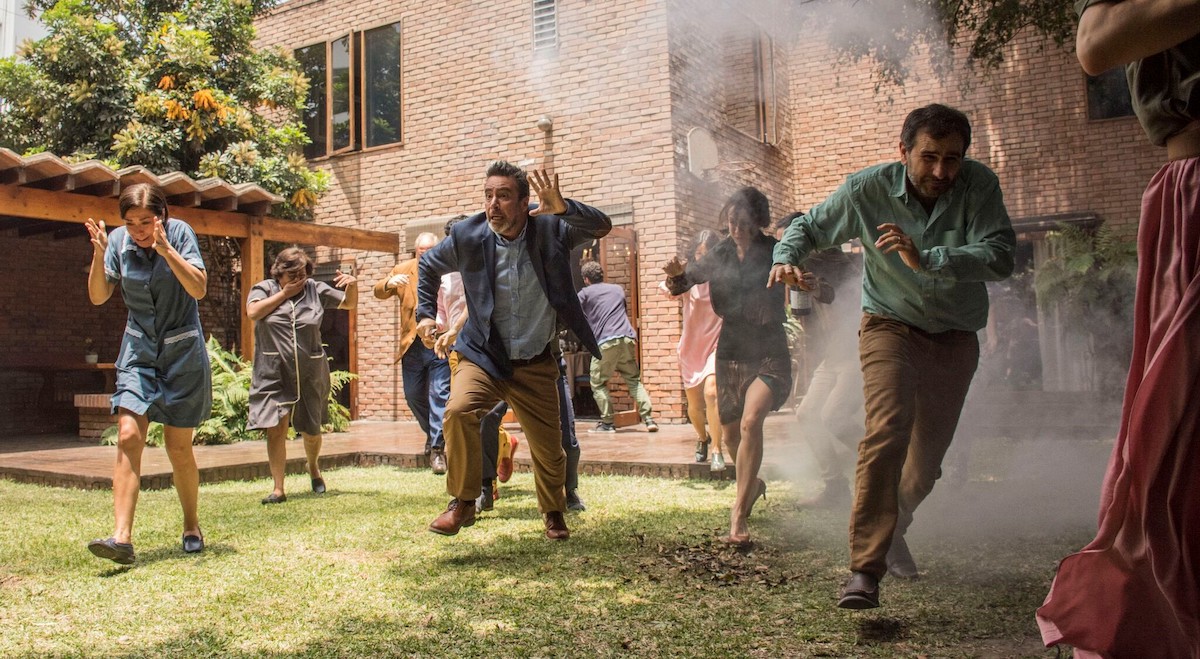

A scene from THE BEST FAMILIES
Peruvian filmmaker Javier Fuentes-León is satirizing class relations with The Best Families. The feature film follows one lunch gone awry as old secrets threaten the long-held divide between a rich family and the maids who serve them. I spoke to the LA-based filmmaker about The Best Families, which he described as his attempt to “hold a mirror” to the white Peruvian upper class.
Fuentes-León is part of that elite group—he even filmed The Best Families in his parents’ old house. But don’t let that fool you—he doesn’t let his rich characters off the hook, finding humor in how un-self-aware they are. He told me, “People who have privilege [have] this blindness to the advantages, [to recognizing how much] farther ahead you are, just by being born with access to education, good food, and relationships. Even the permission to dream is actually part of class – when you are not worried about surviving, you have the chance to dream of being something bigger.”
Fuentes-León certainly has used his permission to dream—The Best Families is his third feature film. And he’s got a wide range of projects in the works: a rock musical, a movie about a fictionalized cult, a miniseries for Netflix about a soccer player. His first feature-length film Contracorriente (Undertow) won the Audience Award at the Sundance Film Festival and was Peru’s submission to the Oscars so he comes well recommended. Tellingly, Fuentes-León has made each of his films outside of the Hollywood system, as co-productions with governments like Peru and Colombia. This approach has freed him from dealing with the discrimination U.S.-born Latinos face when trying to finance their projects. It also allows him and other Latin Americans to use their connections and nation-based resources in a way members of the diaspora cannot.
Of course, that doesn’t mean it’s been easy. Making a film is always hard and the pandemic only makes it harder. The film team had their final technical screening for The Best Families in February of 2020 and then theaters worldwide closed down. Fuentes-León is grateful for the multiple festivals that screened it in-person but particularly laments how it hasn’t screened in Peruvian theaters yet, calling the feeling “bittersweet.”
Ever self-aware, he knows, “The pandemic has hit people in so many profound, life and death ways that it feels unfair to complain about my film not having the distribution opportunities that I would like.” That said, the pandemic has only made The Best Families more relevant as it has further exposed and exacerbated the ongoing problems with class and race divides.
The Best Families offers some hope on these difficult problems but not easy solutions: “As much as I want change to happen, so that people can actually sit at the same table and feel like they belong there, I’m very aware that [it] is going to take time.”


A scene from THE BEST FAMILIES
To help move that process along, Fuentes-León said if he can “make them laugh, they’ll listen and think.” The Best Families features some slapstick but is mostly a comedy of words, manors, and awkwardness. Fuentes-León likes his audience “a little uncomfortable,” hoping to use humor as “a tool to disarm people so that they could laugh and then see themselves.”
Laughs aside, he does see his topic as serious. “The divide in class has not allowed our countries to become really one,” he said, adding “a lot of our problems in the world are because of this divide.” He also recognizes how race and class intersect – a fact, which is reflected in the script and casting for The Best Families. Fuentes-León sees the problem as institutional, “the enemy is the system, [the] colonial mindset.” But he acknowledges that “it’s being perpetrated mostly by the people on top.”
The Best Families isn’t a film with bad rich people and good poor people though. Fuentes-León “loves all of these characters and I wanted people to love all of them, not just the ones that are oppressed.” He believes “prejudice is not exclusive… we all have it. [Even as] some of us try to fight it more than others. Some of us are more aware of it and some of us have it less.” So in the film, he made sure to “show prejudice even in the ones that supposedly are more enlightened.” The result is a funny, insightful film that’s definitely worth a watch.
You can catch it in Los Angeles, August 14 at Outfest, in theaters in Colombia and Peru (pandemic permitting) later this year, and streaming in the U.S. in 2022.
***
A writer and activist, Cristina Escobar is the co-founder of latinamedia.co, uplifting Latina and gender non-conforming Latinx perspectives in media. She’s a member of the Latino Entertainment Journalists Association and writes at the intersection of race, gender, and pop culture. You can follow her on Twitter: @cescobarandrade.


